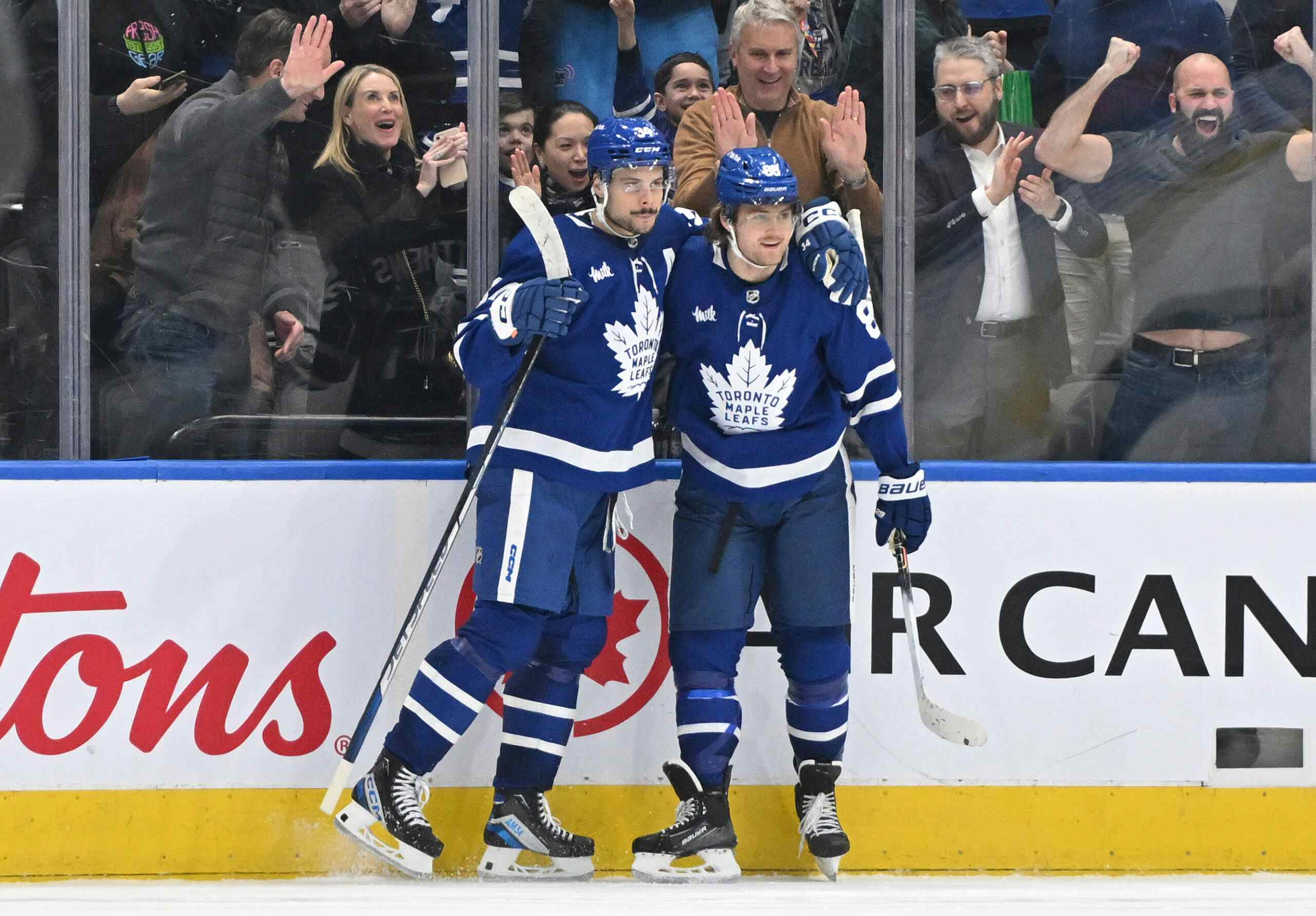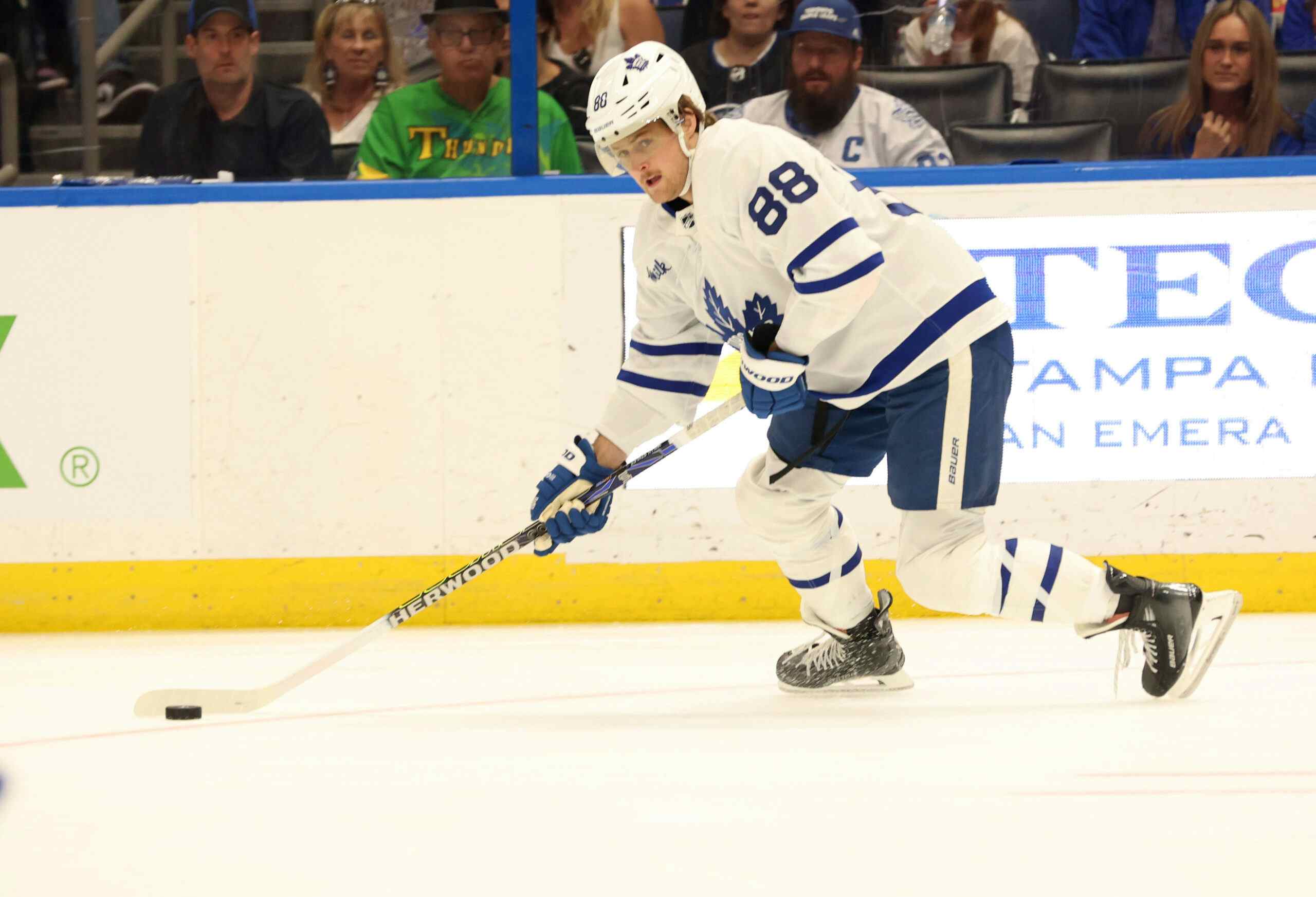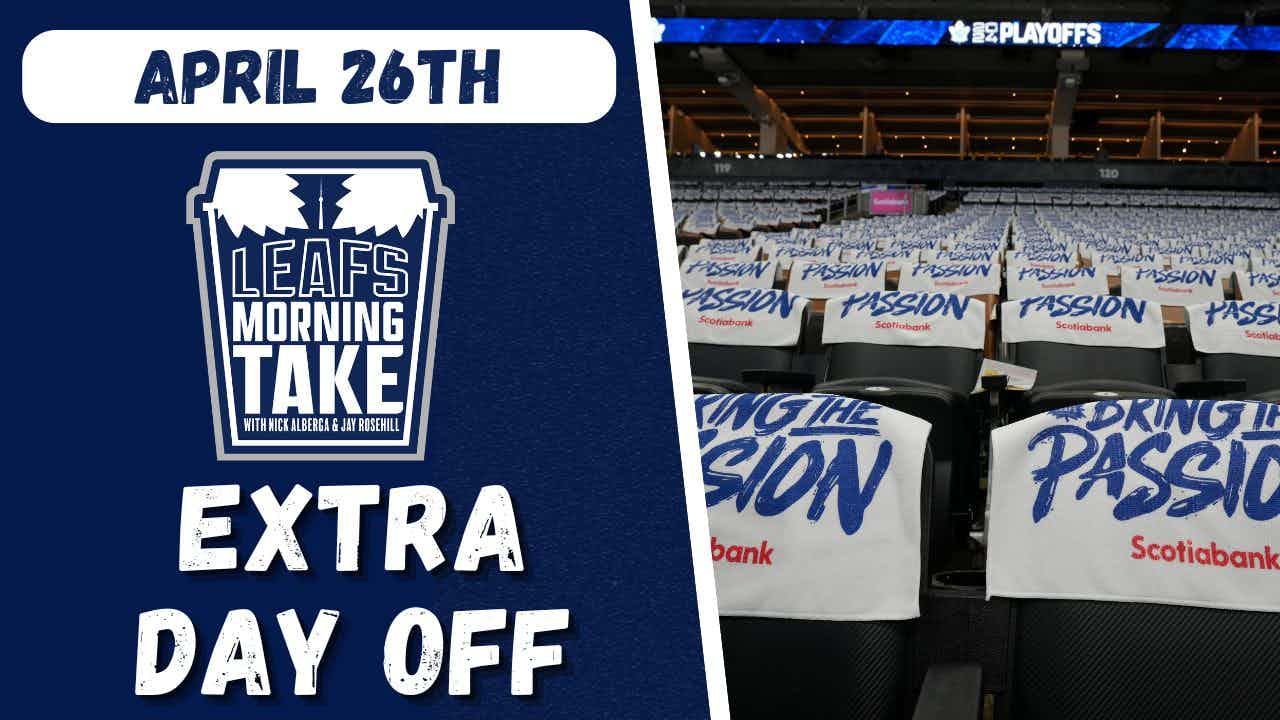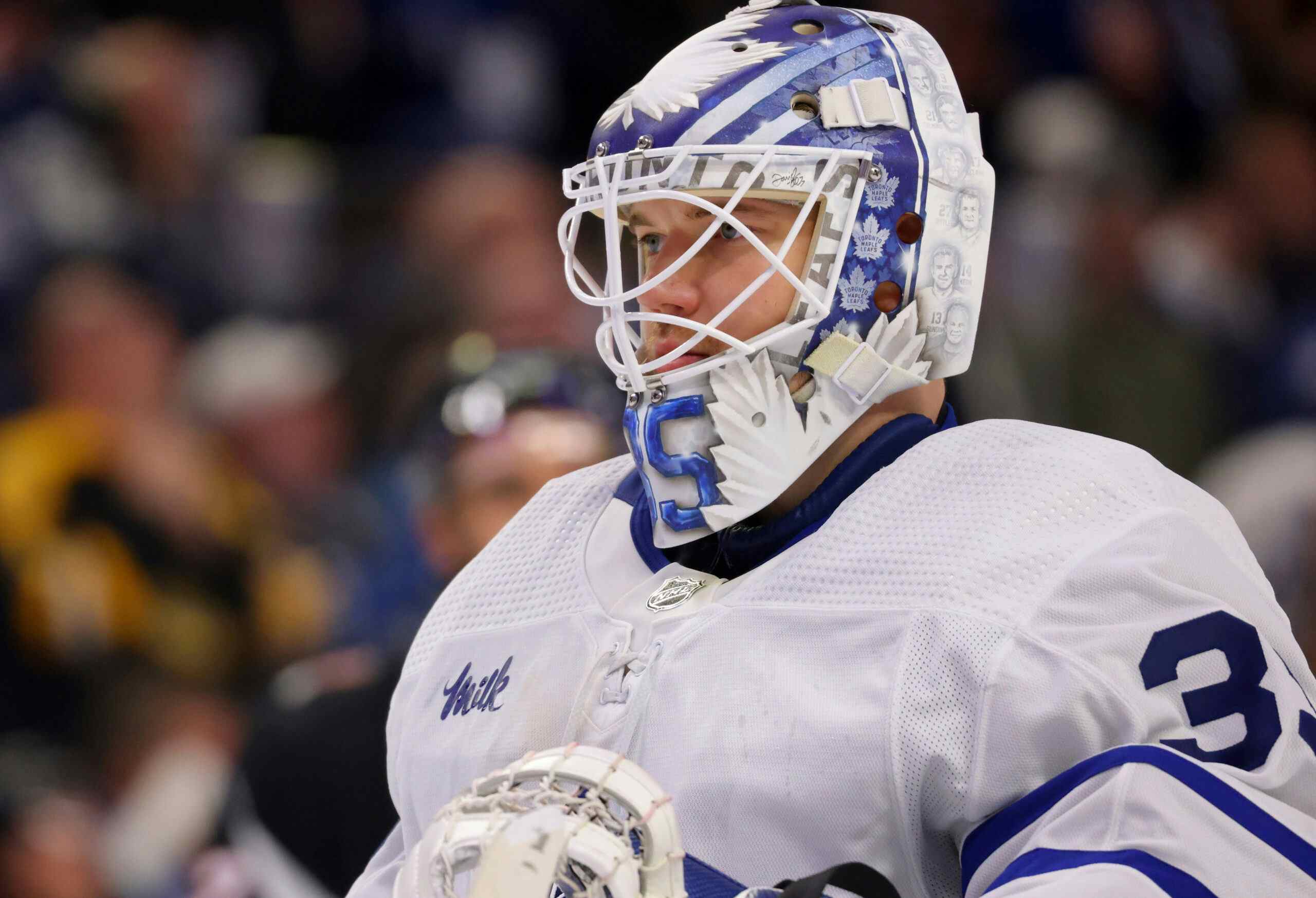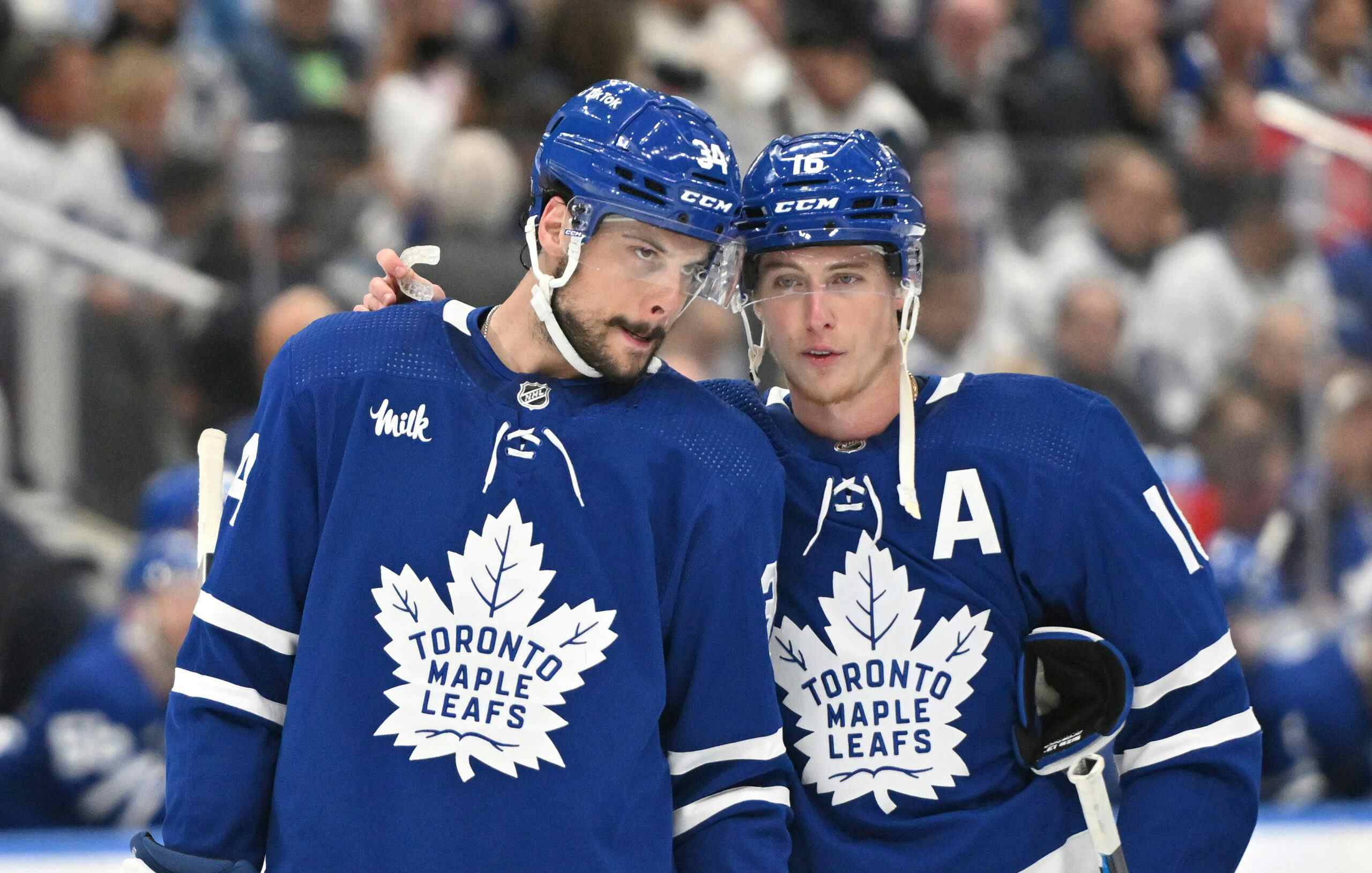Phil Kessel is about to get paid
By Cam Charron
10 years agoThe National Hockey League now caps contracts at eight years, and the change most fans will notice in the coming years is that this will mean a higher salary cap hit for most of the league’s star players. In the last agreement, the long-term “back-diving” deals which are now outlawed saw players paid a pittance at the end of a deal because the salary cap hit simply averages out the salary paid out over the years of a contract.
A good example to use is Miikka Kiprusoff, who was paid $8.5M, $7.0M, $7.0M, $6.0M, $5.0, $1.5M over his long-term contract that expires next summer. However Kiprusoff retired at the end of this past season, so he won’t play this season for $1.5M. In theory, his salary cap hit was $5.83M, the average of $35M spread over six years, but in practice his cap hit should have been $6.7M, since he was really paid out only $33.5M over five years.
Now, the NHL’s years limit wouldn’t affect the Kiprusoff example, but the NHL did tighten up the year-to-year variability rules. For a front-loaded deal, a player’s salary can’t drop by 35% of more year-to-year, nor can any one year of the deal be less than 50% of the maximum salary under the contract. The drop between Year 5 and Year 6 of the deal would have been illegal under the new collective bargaining agreement (Kipper’s salary dipped by 70%), as would have been the Year 6 salary of the deal in general (with the maximum year being $8.5M, no yearly salary could be lower than $4.25M).
The original deals signed by players like Daniel Briere, Jeff Carter, and a host of others were designed to maximize the amount of dollars paid to a player in his prime years while keeping his salary cap hit artificially low. Carter’s $5.3M salary cap hit would be $1M higher if his contract were cut off at eight years, since years nine, ten and 11 of the deal, he’s making just $7M combined for those seasons. To combat this, the NHL is simply going to do their best to make teams actually pay for their teams’ best players, and that’s going to become a lot more noticeable in the coming years.
It’s easy to look Evgeni Malkin and assume that he’s making more than Crosby with his $9.5M hit to Crosby’s $8.7M, but that’s just an effect of the collective agreement. Crosby’s cap hit would be worth $10.8M if he were cut off at eight years. Be wary of comparing salary cap hits from contracts signed post-January 2013 with those signed between August 2005 and September 2012.

So what does this mean
I was listening to James Mirtle’s segment on TSN radio this morning with friends of Leafs Nation Macko and Cauz. One of the focus points of the segment was the looming UFA contract for Leafs superstar Phil Kessel, and Mirtle suggested that Kessel would sign a deal coming in around $8-million a year. During the segment the hosts got a text message from a fan that suggested “$8-million for Kessel? LOLOLOLOL.”
Kessel had a “one-on-one interview” on Sportsnet at his golf tournament yesterday. He’s a shy guy and doesn’t say a lot in front of the cameras and he wasn’t giving anything away, but the takeaway is that he would like to have an extension done before the season starts. That’s preferable for the Leafs, since if Kessel goes off the way he did in the second half and the playoffs last season a second-consecutive campaign, his value will be way higher going into unrestricted free agency and he’d be tougher to re-sign.
I’ve looked at this previously as to what Kessel will be worth in the coming years, and it’s clear that players lose scoring touch past the age of 27, including elite goal scorers. Kessel will shortly be starting his 26-year-old season, and Gabe Desjardins has shown in the past that that’s about where players begin to lose some offensive production. Kessel quite possibly had his career year—his first time ever being above a point-a-game—in a shortened season.
It’s worth noting that since 2009, when Kessel joined the Leafs, he’s 7th among all NHLers in goal-scoring with 119 goals. Obviously it’s helped that he’s played the last four years in his prime years, but he still has more goals and points over the span as John Tavares, Bobby Ryan and Jonathan Toews. It’s clear that Kessel is an elite offensive performer and that’s generally what NHL general managers pay for, so it’s not ridiculous to think that Kessel could cash in next summer with a ludicrously high pay day.
Because the forecasts suggest that players will drop off in scoring in their late 20s, if I’m running the Leafs, I give Kessel a shorter-term contract, but at a much higher salary range. The five highest years on Corey Perry’s recent deal are worth $10M, $10M, $9M, $9M and $9M. That’s a $9.4M salary cap hit, which seems reasonable to me. If you wanted to go longer, you slightly dip Kessel’s salary in Years 6, 7 and 8 of the deal down to $5M, which would be the minimum salary allowed for such a contract. That brings a salary cap hit of $8.25M, which also seems reasonable.
For Mirtle, it’s a case of the Leafs having to ask themselves “do we want this guy or not?” I’d be more wary about an eight-year deal that will expire when Kessel is in his mid-30s, but it’s quite clear that the guy is going to get paid, and you’d rather him get paid with Toronto than anywhere else.
If the Leafs do want Kessel, then there should be something happening soon, and the salary cap hit may surprise some people. This post is really designed to ease the shock. In exchange for the long-term security, players gave up salary, but since the teams can’t offer security past eight years (seven for unrestricted free agents on other teams) then it becomes a matter of how many dollars a team is willing to offer.
Contract info via the indispensible Capgeek, of course.
Recent articles from Cam Charron


